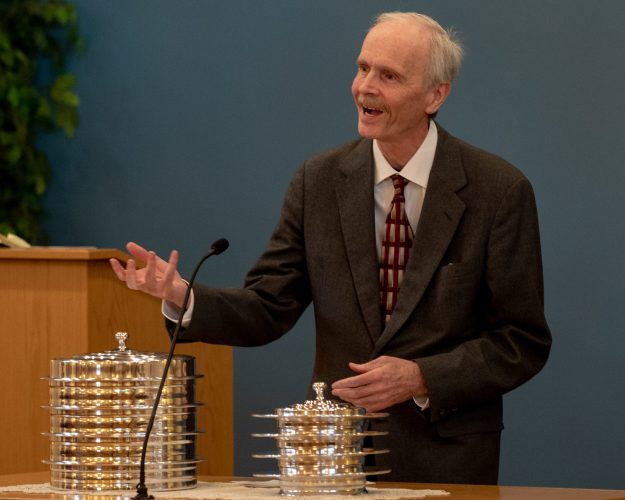
Our collective vision is to become an evangelistic congregation—one in which all members are focused on seeking the “lost.” The “lost,” as the Bible uses the term (Luke 19:10), refers to those who remain outside of a covenant relationship with God through Christ. More simply, it refers to those who are not yet Christians according to the biblical definition of the term. To “evangelize” means to proclaim God’s word to others in whatever manner is biblical, effective, and expedient. It means “speaking the truth in love,” since God wants all people to come to the knowledge of His truth in order to be saved (Ephesians 4:15, 1 Timothy 2:4).
Our collective plan for reaching this vision is fourfold:
- To worship God in spirit and truth (John 4:24). We believe that God alone is worthy of our worship, and He has instructed us in His revealed word as to how to carry this out.
- Promote discipleship to Jesus Christ (Matthew 16:24). A “disciple” is the student of a master teacher. In our case, our Master is Christ, and we are His students and servants (Matthew 10:24-25a, John 13:13).
- Honor God’s word in all we say, do, and teach (John 17:17). God’s word (the gospel of Christ) has been revealed from heaven by way of divine revelation to Christ’s apostles (Galatians 1:11-12, 2 Peter 3:1-2). It provides the only factual information that exists concerning God, human souls, sin, salvation, the spiritual realm, and the afterlife. Our objective is to read it, study it well, and be ready to defend it whenever necessary (2 Timothy 2:15, 1 Peter 3:15).
- Show godly love to all people, whether or not they are Christians (Romans 13:8-10). “God is love” (1 John 4:8), and all who identify with Him must also strive to love as He loves. This means we are to love “one another” (i.e., fellow believers) as well as our “enemies” (i.e., whoever opposes Christ) (Matthew 5:43-48, John 13:34-35, Galatians 6:10). Christian love is defined by God, not individual people, groups of people, social movements, popular opinions, or church councils.
